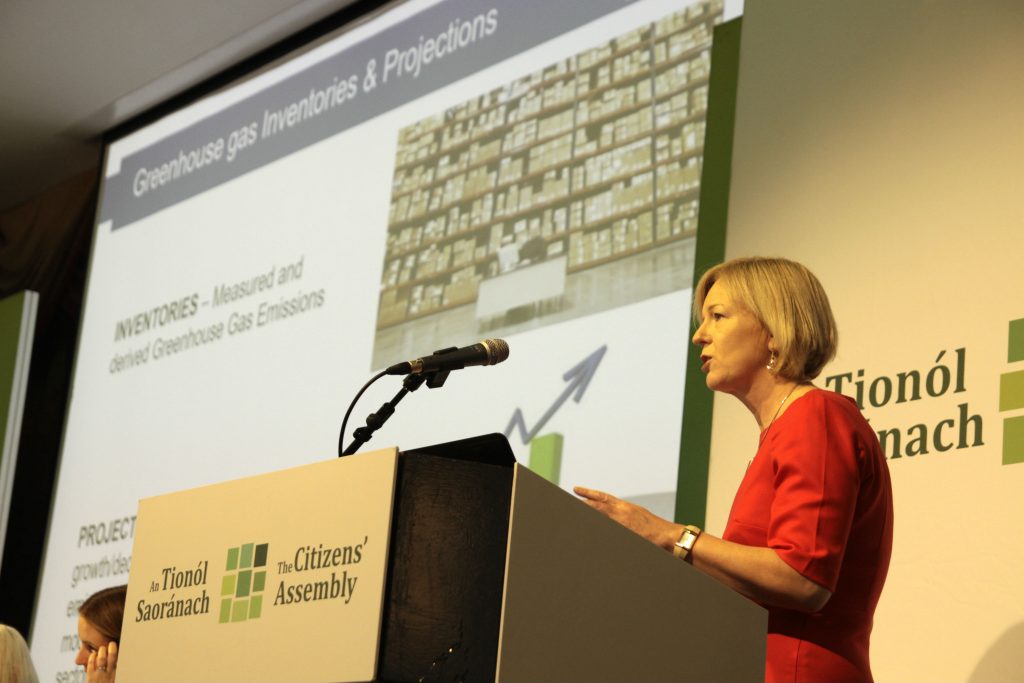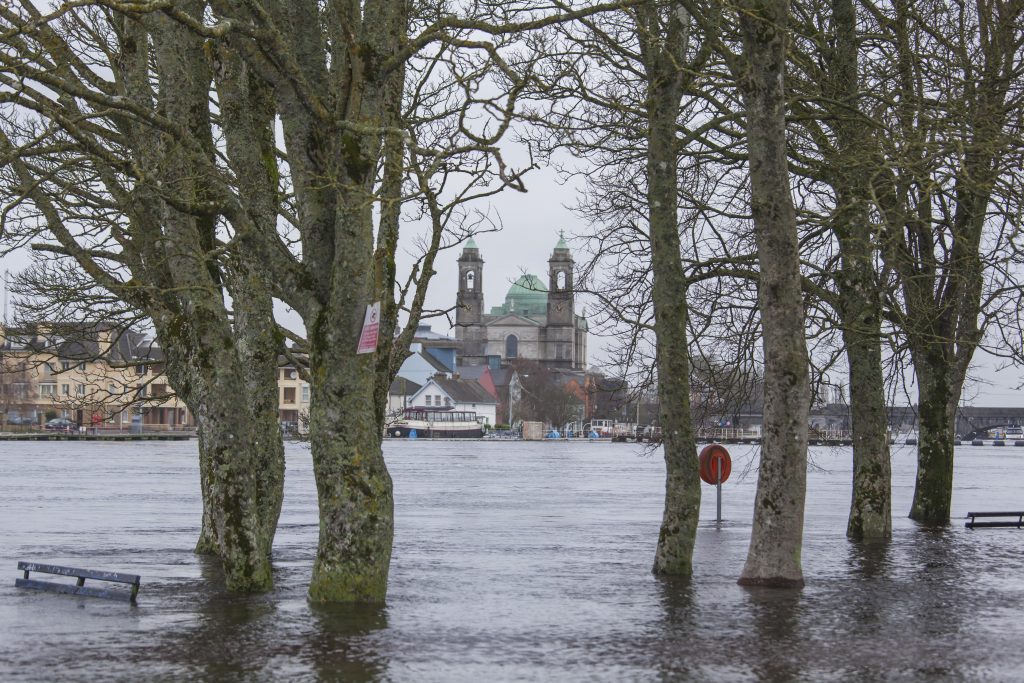Evidence of climate change impact on Ireland clearer than ever before, says EPA

November 7th, 2o17
New research from the Environmental Protection Agency (EPA) points to the clearest and most compelling evidence of the impact of climate change on Ireland to date.
Launched at today’s EPA Seminar on Climate Change Research, the report warns that the predicted changes to our climate are set to result in wide-ranging economic and societal impacts.
The report, which combines data from numerous academic papers and studies from Met Éireann and the Intergovernmental Panel on Climate Change (IPCC), finds that our sea level and annual temperatures are continuing to rise at an alarming pace.
The report also points to a likely increase in summer drought, winter flooding and less frequent but more intense storms over the coming decades.

EPA Director Laura Burke said that Ireland must start preparing for a “climate resilient future” Photo: Niall Sargent
Main Findings
The EPA’s research indicates that our island has already seen an increase in mean annual temperatures of 0.8°C since 1900, with an increase of 1–1.6°C projected by mid-century. The largest increases are set to occur in the east of the country, the report states.
The higher end of this predicted rise will go beyond the long-term goal set by the Paris Agreement of limiting the increase in global average temperature to 1.5°C above pre-industrial levels.
Average annual rainfall has also increased by 60 mm between 1981– 2010, according to the report. This is five per cent more than the average recorded in the previous 30 year period between 1961 and 1990.
In general, larger increases in rainfall have been recorded in the west where farmers have been hit hard by the recent fodder crisis as wet weather conditions leave farmers facing a hay shortage for livestock feed.
Significant changes in seasonal rainfall patterns by mid-century will also likely lead to drier summer conditions, while flooding is expected to increase in both the winter and spring.
Data analysed by the EPA shows that there has been sea level rise of about 3.5 cm per decade since the early 1990s, consistent with expected acceleration due to climate change.

Flooding in Athlone in January 2016 Photo: Niall Sargent
Trends set to increase
The report’s lead author Dr Margaret Desmond said that the impacts of global climate change for Ireland are now “clearer and more compelling” than ever before.
The University College Cork academic warned that the trends identified through the research are projected to continue and increase over the coming decades.
Sea level rise, for example, is projected to continue well into the 22nd century with best-case scenarios pointing to a staggering increase of between 55 and 60 cm. This will amplify the impacts of storm surges and wave erosion in coastal areas across the island, the report warns.
Commenting on the report’s stark findings, Director General of the EPA Laura Burke said that we have to start preparing for the local impacts of climate change.
The report also highlights a range of adaptation options to reduce vulnerability and build resilience to a changing climate, which Mr Burke said should help to plan for a “climate resilient future”.
“Substantial reductions in emissions of greenhouse gases are also needed – in Ireland, Europe and globally – if we are to achieve the Paris Agreement goals and limit the rate and extent of climate change to a manageable level,” she added.
On Wednesday, the Government’s Climate Change Advisory Council (CCAC) said that the pace and scale of emissions reductions must be accelerated across all sectors to have any chance of achieving our long-term objective of reducing emissions by at least 80 per cent by 2050.
[x_author title=”About the Author”]







